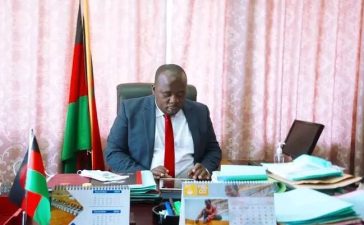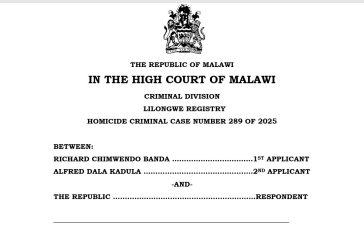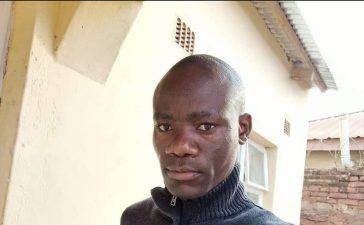The Democratic Progressive Party (DPP) has once again been caught using the Malawi Police Service as a political hammer, hitting the same suspects again and again with fresh arrests, as if the law is a toy for revenge. But this time, the High Court has stepped in—hard.
High Court Judge Howard Pemba has granted a powerful injunction stopping the Malawi Police Service from making any more arrests of the 11 suspects who were earlier accused of disturbing civil servants’ peaceful demonstrations in Lilongwe back in March. The applicants protected by the injunction are Joseph Tilibe Gedion, Alfred Dala Kadula, Bruno Mulo Makina, Erick Phakamisa, Davie Malamulo, Issa Saidi Rahim Jonathan, Rodgers Fakili, Lameck Manduwa Mkasa, Lesta Kanjunga, Howard Anusa Kadango, and Mavuto Alexander Njuchi. The ruling—written in firm, unmistakable language—sends a loud message: the police are not a weapon for political abuse.
The court documents show clearly that the police were repeatedly picking up the same people, tossing them in cells, releasing them, and then arresting them again. It was a cycle of torment. It looked more like punishment than justice. It looked like revenge, not policing. It looked unconstitutional—and the court agreed.
The injunction orders the police to immediately release anyone still in custody and warns them strongly against “any further arrests” of the named individuals. Instead, if the State has new issues to raise, they must follow the law and simply serve the suspects with summons. No handcuffs. No midnight arrests. No intimidation.
Defence lawyer George Kadzipatike confirmed that the injunction has already been delivered to Area 30 Police Headquarters and to the prosecution team at court. In other words, the police have been officially told: enough is enough.
What is happening is clear. Under the DPP, the police are not acting like independent law-enforcers; they are acting like political bodyguards, arresting people again and again as a form of pressure, fear, and humiliation. It is an old tactic—arrest today, release tomorrow, arrest again next week—until the suspect breaks down.
But Malawi is no longer in the dark ages. The Constitution forbids this. A police service must investigate, not persecute. It must protect citizens, not torture them through repeated arrests meant to weaken and silence.
This court order is more than a legal ruling. It is a national warning. It is a reminder that power has limits. And it is a wake-up call to the DPP: you can run government, but you cannot run over people’s rights.
For now, the suspects can breathe. The court has spoken. And for once, the Malawi Police Service has been told to put down the political handcuffs.












